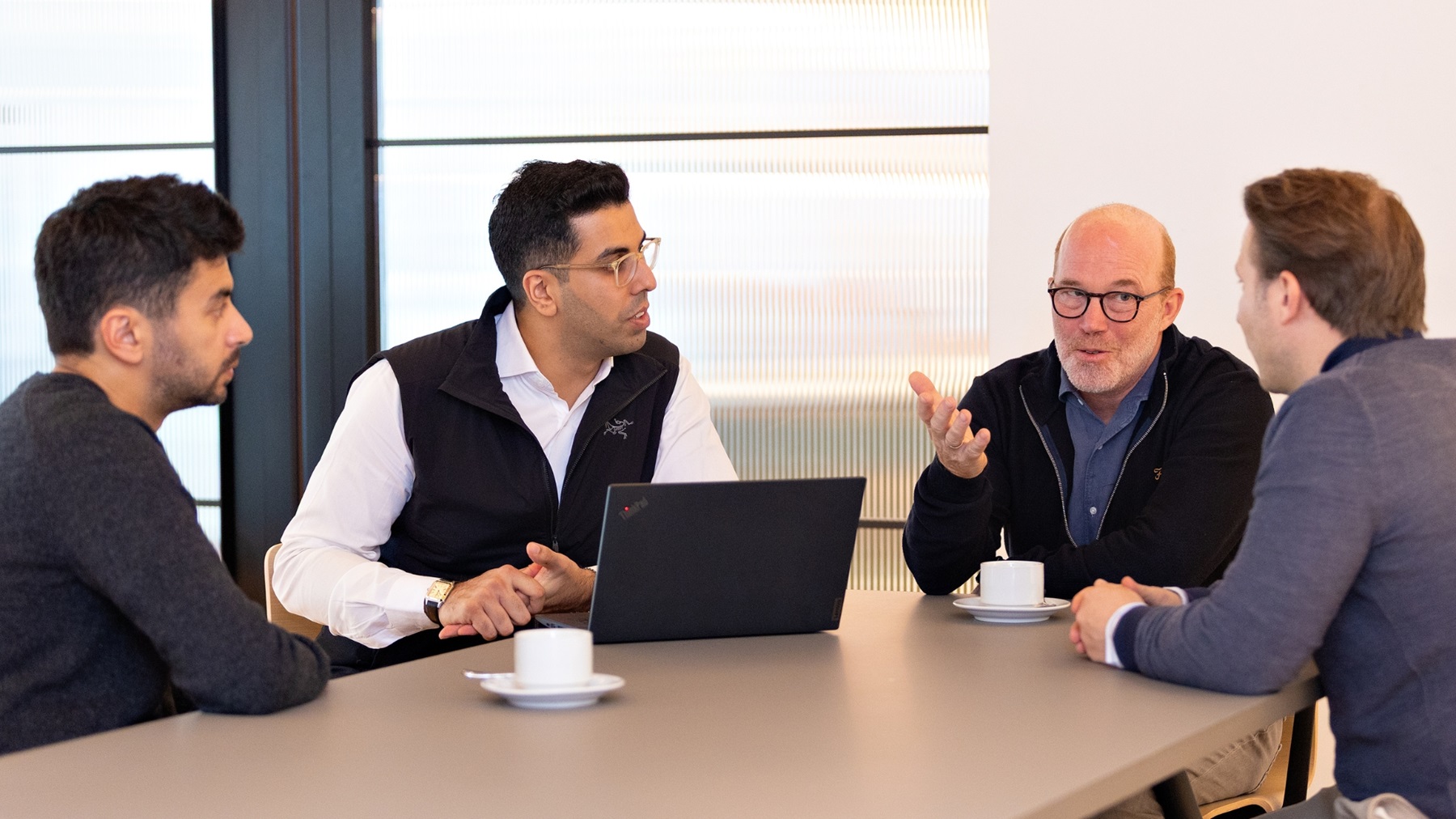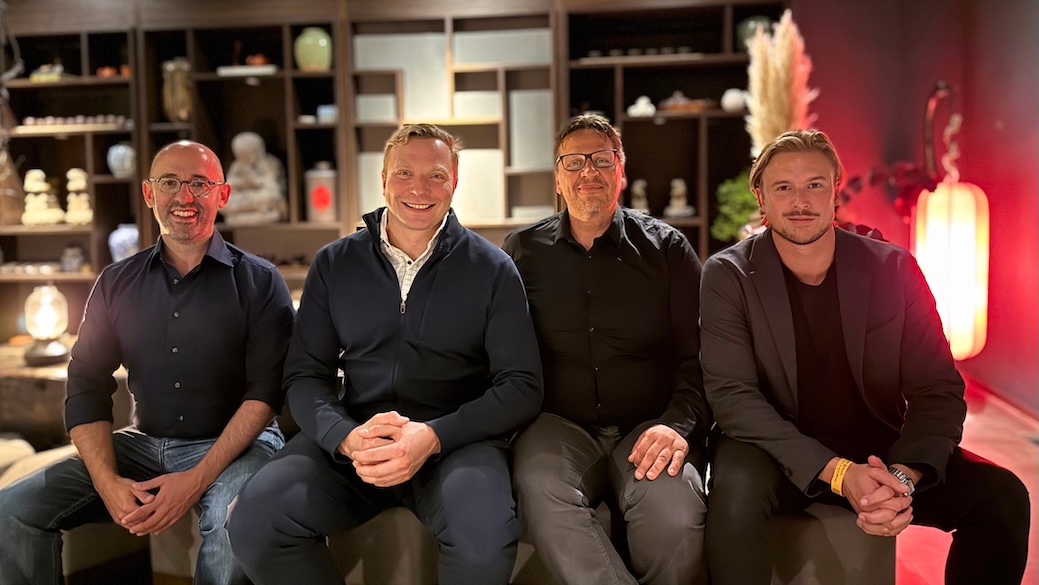What These 3 Investors Want From A Founding Management Team
Team, team, team. That’s the most important factor venture capitalists are considering, according to our report that goes inside the minds of European investors.
On this, European and American VCs are aligned. Especially for early-stage investors, the founding team is by far the most important decision factor. In a survey of 437 European investors, 49 percent of VCs state a startup’s management team is the most important factor to determine their decision to invest. When looking at the performance of portfolio companies, the founding team was mentioned in both cases as the most important factor driving success or failure. And when asked about the changing market environment in 2022, 51 percent said the founding team became even more important.
Overall, the data paints a consistent picture that the team is by far the most relevant aspect in any investor’s decision-making process. But the question remains: What does this really mean? What makes a good management and founding team?
According to the data, the most important factors for European VCs are ability / potential (33 percent), passion (24 percent), entrepreneurial experience (18 percent), industry experience (12 percent), and teamwork / cohesiveness (9 percent). We think this still is a bit too surface, so we wanted to go even deeper by asking three experienced European VCs (Katharina Wilhelm, Partner at Index Venture; Andreas Helbig, Partner at Atomico; and Rebecka Löthman, Investment Director at Inventures) about what they specifically look at when assessing founding teams to give founders better insight into what’s really important.
Assessing the founding team
We know the founding team is the most important deciding factor. But what exactly are investors looking for?
Personally, I’m looking to see if you know your industry (target market, pain points, and all) and if you’re able to understand complex realities. Beyond that, I want to see that you’re emotionally intelligent, meaning you know how to treat people, how to talk to them, and that you’re able to understand them. I want to see hustle and know that you’re able to hire and lead a team.
This ties into what Andreas Helbig at Atomico calls the growth mindset. "Can you grow from an ideator to a manager to an organization leader?" he'll ask founders.
For him, this means having a mission-driven mentality––the ability to unite a team behind that vision so you can attract and retain talent. In other words, he's looking for a talent magnet.
Beyond wanting to better understand what drives you to build your startup, Katharina Wilhelm from Index Venture also wants to know why you believe you have the right team to succeed. On top of that, she wants to see that you know what "great" looks like so you can hire the right team to support you.
Rebecka Löthman at Inventures, is similarly looking for founders who can build and lead a strong team with diverse backgrounds and experiences. “It’s important that they show that they are aware of their own weaknesses as a founding team and willing and able to attract the right people to fill that gap.”
The key here is acknowledging weaknesses. None of us are looking for perfection. To the contrary, I expect failure. But can you adapt and learn from failure? That’s what I and other VCs want to know.
Rebecka also has no problem with failure. She says they're not looking for 'Supermans'. "We are fine with some flaws as long as the other qualities make up for this."
She's referring to "outliers." That is, people who have extraordinary qualities and a deep drive to prove themselves. Another quality she looks for are "contrarian optimists." That's someone with "unique insights into the problem and market they are taking on." A contrarian optimist has sufficient experience and understanding of the problem they're trying to solve but has a different way of trying to solve the problem than what's been done before. The optimism comes in to ensure that the founder sticks with their contrarian solution.
An arguably adjacent characteristic to optimism is ambition. That’s a key element Andreas is looking for in a founding team. After all, a multi-billion dollar business doesn’t just happen.
Red and orange flags to avoid
When it comes to VCs, the old adage about first impressions is especially true. Both Katharina and Andreas talked about “lack of humility” as a red flag.
“Founders need to be self-aware,” he said. “They’re great but they unfortunately don’t have all the answers.”
Katharina says she’s looking to get a sense of whether or not the founders are opportunistic about what they’re building. Are they arrogant? Evasive or even obstructive to questions from VCs? And more than ever, she’s looking at the team dynamics. If one founding member is always cutting off the other, that’s a red flag.
Similarly, Rebecka noted that an orange flag for her is when a founder doesn’t mention their team at all in the first call. “This indicates that they do not value the team enough,” she said.
Above all, these VCs expect you to know your industry, product, and value proposition. Rebecka specifically noted that she’s looking for you to know more than her about competitors, market size, and the key metrics in your business today.
Of course, you’re not going to have an answer to every question. So more than anything, be honest about what you don’t know.
“A red flag to me is always if the founders lie,” said Rebecka. “We want to build a relationship of trust and transparency and starting this relationship with lies is a no-go for me.”
The top skills a founder needs to have
Here we see perhaps the greatest divergence in responses between VCs, though I think it’s fair to say that these skills live in the same neighborhood and are often related.
Katharina said pointedly that she’s looking for adaptability and coachability, the ability to recruit, and good decision-making skills. Andreas focused on sales, saying “Often it’s the founders’ job to close the first customers. They need to be able to articulate their value proposition and convince customers.”
This ties into another skill he’s looking for: product thinking.
“Founders must be able to reconcile customer feedback with an opinionated product roadmap and prioritize the right features in the right sequence,” he said.
Rebecka, on the other hand, said she’s looking for a founder’s ability to get things done and show that they’ve done this in previous roles at other companies. But she had the most to say about hustling.
“I really like great hustling skills,” she said. “That the founders are able to kick in doors and accomplish a lot with very little is important to me.”
The ability to attract talent was mentioned again by both Andreas and Rebecka. Andreas wants people who are talent magnets. Or as Rebecka put it, she wants people who can communicate their vision clearly and convince strong talent to join their crazy quest.
And by vision, Rebecka is referring to the long term.
“I love when founders can go from thinking very big and talking about their 10-year vision to then quickly switching gears to the molecular level of their business.”
The top personality traits VCs want from founders
We’ve all heard some variation of the joke about the salesperson who was so good, they could sell water to a fish. Nobody ever imagines the salesperson in that joke to be a dull, lifeless android. You imagine someone who’s charismatic and ambitious with the chutzpah to pull off the seemingly impossible.
These are precisely the characteristics European VCs want from founders. You need to be ambitious and show a sense of urgency all the while, as Rebecka put it, showing self-awareness with a healthy dose of ego.
"Maybe it's a bit of a non-obvious trait," she said. "But [a little ego] can help in sticking to their vision despite push back and give you the drive and confidence to take over the world."
Another non-obvious trait that Andreas is looking for is naivety.
“You need to be a bit naive to actually make the leap to start a company in order to change the world,” he said. “I deeply respect this, even though ‘naivety’ usually has a negative connotation. But in this sense, it's the opposite of overthinking. At some point, you just have to go out and do things, without over-analyzing every reason why it can go wrong.”
All that said, you’ll inevitably face some naysayers. That’s why for Rebecka, she’s looking for founders with the resilience and grit to see their vision through.
“Especially in uncertain economic times like these, this is the most important characteristic for me,” she said. “I’m looking for founders with a chip on their shoulder, driving a genuine passion for a problem close to their heart.”
Want more updates on our portfolio? Sign up for our monthly newsletter and follow us on LinkedIn.













.svg)
